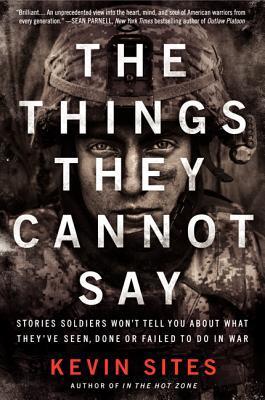What do you think?
Rate this book


336 pages, Paperback
First published October 9, 2012
“When a soldier decides not to share his life-defining moments in war with his wife, parents, children or community because of the accompanying guilt, shame, pain or any other valid reason, it increases the likelihood that he will feel more alienated from the society for which he was fighting…the alcohol, drugs, and other self-medicating outlets for soldiers dealing with PTSD further isolate him…the warrior who does share the descriptive and often disturbing narrative of his own war experiences reconnects himself to his community while simultaneously reminding them of the responsibilities that they also bear for his actions by sending him to fight and kill on their behalf. Stories are a way for societies to share in the burden of war. They provide knowledge necessary to better understand the warrior’s experience and help them find meaning and sometimes forgiveness for their actions.”